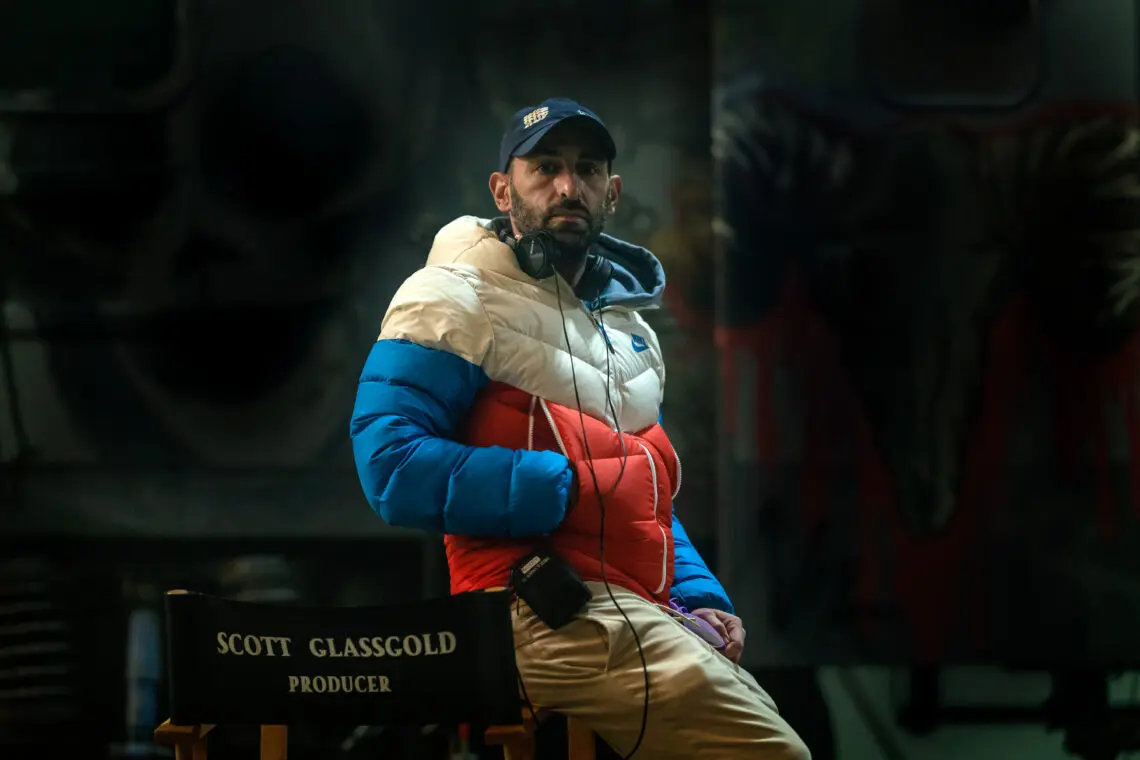Producer Scott Glassgold has launched 12:01 Films, a production company which aims to identify, grow and produce creator-driven IP, primarily through short stories as the foundational launching point.
Verve, which represents Glassgold, helped establish the new production company. Over the last two years, Verve and Glassgold have closed 19 short story sales, ushering in a short story IP boom that 12:01 intends to remain at the forefront of.
That boom, Glassgold says, began with “My Wife and I Bought a Ranch” by Matt and Harrison Query. “It felt like this amazingly fresh, unique genre piece. And I knew immediately that there was a place in it for film and hopefully beyond.” He showed the Reddit short story to Verve’s David Boxerbaum and Adam Levine, who shared his enthusiasm. Things moved fast from there.
“This was on a Tuesday — I’m being literal. By Friday, the short story went into a huge bidding war that ended up selling for over seven figures,” Glassgold says. The film adaptation, which originally sold to Netflix, is now set up at Amazon MGM with “Companion” filmmaker Drew Hancock on board to write and direct.
Popular on Variety “The following week, we took the short story into the publishing market,” Glassgold adds. “That, too, went into a very bidding war that ultimately, Grand Central ended up buying the rights to.” “‘My Wife and I Bought a Ranch’ was subsequently expanded and published as a novel, titled ‘Old Country.’”
“It spurred on this opportunity where we started to understand, ‘Hey, there’s some amazing ideas going on over here on Reddit and other places.’ And before you know it, people were sending stories to Scott, who would filter a lot of them out, send us the ones that he thought were great, and then together, we would work on them and find the through line. They all each had what I would call an excellent hook,” Verve co-founder Levine says. “Together, we were able to figure out how to then best put the right elements together to make it attractive for the Hollywood system.”
That secret sauce includes identifying short stories (often from Reddit), and ushering them through the complexities of both publishing and Hollywood adaptations simultaneously. Key projects in the pipeline from this short story apparatus include Aaron Jayh’s “The Dwelling” with Michael B. Jordan starring for Amazon Studios, Colin Bannon’s “Long Lost” with Steven Spielberg for Amblin/Universal, “I Am Not Alone” starring Jessica Chastain at Netflix, Marcus Kliewer’s “We Used to Live Here” starring Blake Lively for Netflix, and Kliewer’s other story “Caretaker” with Sydney Sweeney starring at Universal.
“Marcus got to launch so far,” Verve managing partner Liz Parker says of author Kliewer’s ascendance in publishing. “He’s in a three book contract. He had his first book in ‘We Used to Live Here.’ He adapted it from a 40-page story to a 350-page story, and it took off on BookTok. It sold over 150,000 copies already, and he is able to experience his dream, which is living the life of an author full-time. He continues to write stories. We continue to package them up, and it’s been a really, really exciting thing to watch.”
“We’re really trying to help artists create their own material and grow their own intellectual property, and grow it into multiple mediums, and do it in a way that sort of is in synchronicity: the book comes out, and that only raises the profile and the excitement for the film, and vice versa,” Glassgold says. “Our goal is to be growing these pieces in a way that they are informing one another and both empowering the artist and ultimately the material.”
“More than ever, we’re seeing buyers want a hand in the creative process, getting involved earlier, looking for projects that are pre-packaged with strong talent. That’s a shift, and it’s opening new doors,” says Verve partner David Boxerbaum.
While today’s short stories largely skew towards horror, Glassgold says 12:01 intends to be “agnostic to genre,” focusing on pursuing fresh and original stories regardless of subject matter.
“There’s two key ingredients to any project that I aim to help grow and build. It’s voice, meaning the voice of the artist, it’s the idea, the central core idea of the piece of which that artist is applying their voice,” Glassgold says. “It’s that combination, at the end of the day, that I think ultimately yields these great results.”

 Italian
Italian







